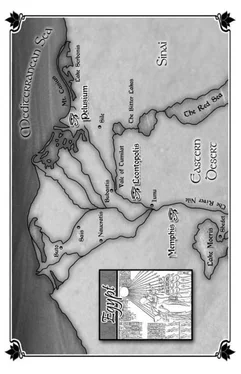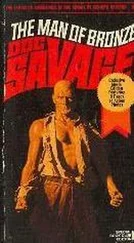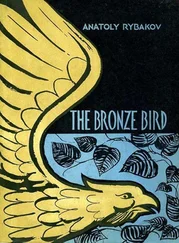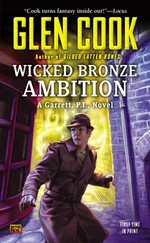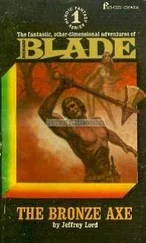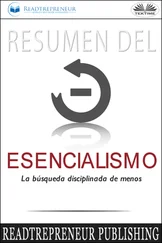Scott Oden - Men of Bronze
Здесь есть возможность читать онлайн «Scott Oden - Men of Bronze» весь текст электронной книги совершенно бесплатно (целиком полную версию без сокращений). В некоторых случаях можно слушать аудио, скачать через торрент в формате fb2 и присутствует краткое содержание. Жанр: Исторические приключения, на английском языке. Описание произведения, (предисловие) а так же отзывы посетителей доступны на портале библиотеки ЛибКат.
- Название:Men of Bronze
- Автор:
- Жанр:
- Год:неизвестен
- ISBN:нет данных
- Рейтинг книги:3 / 5. Голосов: 1
-
Избранное:Добавить в избранное
- Отзывы:
-
Ваша оценка:
- 60
- 1
- 2
- 3
- 4
- 5
Men of Bronze: краткое содержание, описание и аннотация
Предлагаем к чтению аннотацию, описание, краткое содержание или предисловие (зависит от того, что написал сам автор книги «Men of Bronze»). Если вы не нашли необходимую информацию о книге — напишите в комментариях, мы постараемся отыскать её.
Men of Bronze — читать онлайн бесплатно полную книгу (весь текст) целиком
Ниже представлен текст книги, разбитый по страницам. Система сохранения места последней прочитанной страницы, позволяет с удобством читать онлайн бесплатно книгу «Men of Bronze», без необходимости каждый раз заново искать на чём Вы остановились. Поставьте закладку, и сможете в любой момент перейти на страницу, на которой закончили чтение.
Интервал:
Закладка:
Shemu, the harvest season, corresponding to our own summer, was a time of great festivals and celebrations, provided the crops were bountiful. The months of Shemu were Pakhons, Paoni, Epep, and Mesore.
The Egyptians numbered their years from the beginning of each Pharaoh's reign (our 526 BCE was the 44th year of Pharaoh Ahmose's reign).
Canopic jars
Called qabi en wet in Egyptian (loosely translated, it means "jars of flesh"), Canopic jars are containers used in the mortuary rituals to hold the viscera of the deceased after embalming. The vessels were squat in design and made from a variety of materials: pottery, faience (q.v.), wood, or stone, depending on their owner's wealth. A set contained four jars, each with a carved stopper representing one of the four Sons of Horus (q.v.) — human-headed Imsety, who presided over the liver; baboonheaded Hapy, who protected the lungs; jackal-headed Duamutef, guardian of the stomach; and hawk-headed Qebehsenuef, who ruled the intestines. The respective organs were removed during embalming, dried in natron (a natural dehydrating agent), wrapped, and placed in their jars to be entombed alongside the mummy.
Corinthian helmet
The standard helmet of the Greek hoplite (q.v.) from the early 7th century BCE onward. Beaten from a single sheet of bronze, this helmet covered the entire head, leaving only eye sockets and a narrow slit for breathing. One variation, called the Chalcidian helmet, included cutaways over the ears to facilitate better hearing on the battlefield. Both styles had a removable crest of colored horsehair. Against non-Greeks, the Corinthian helmet gave hoplites a serious psychological advantage: it rendered its wearer faceless; the expressionless bronze mask hid any fears or anxieties that might plague the man beneath.
Croesus
(Greek Kroisos.) Last king of Lydia, Croesus reigned from c. 560–546 BCE, and allied himself with Egypt, Babylon, and Sparta against the rising might of Persia. Even in the ancient world, the name of Croesus was synonymous with vast wealth. His went toward patronage of the arts, monumental building, and influencing lesser rulers on his borders. Stories of Croesus fired the imagination of Herodotus, who included the eastern despot in his Histories as an example of disastrous pride. One such story tells how Croesus consulted the oracle at Delphi (q.v.) and was advised that if he crossed the Halys River against Persia, he would destroy a mighty empire. Wrapped in the blanket of divine revelation, Croesus marched. The prophecy proved correct — his own empire fell to the Persians in 546 BCE.
Crook and Flail
The two most important insignias of the Pharaohs, said to have been given to them by the god Osiris (q.v.). The crook represented Pharaoh's role as guardian of the people, their shepherd and protector; the flail symbolized his role as provider (flails were used to winnow grain).
Cyrus
(Persian Kurush; Greek Kuros.) Persian conqueror who ruled from 559–530 BCE. Cyrus turned the semi-nomadic people of the southwestern Iranian plateau into one of the four greatest nations of his day (Egypt, Babylon, and Lydia being the other three). With methodical sureness, he excised his enemies until only Persia remained as a power in the East. Despite his expansionist policies, Cyrus was a benevolent ruler, praised in the Old Testament book of Isaiah and by later Greek philosophers for his wisdom and foresight. Cyrus died in 530 BCE while campaigning against the Massagetae, a Scythian tribe living around the Caspian Sea. His eldest son, Cambyses, succeeded him.
Delphi
A famous sanctuary of Apollo in central Greece. Situated on a terraced spur of Mount Parnassus, the site was thought to be the center of the world and served as a neutral meeting place for the surrounding Greek city-states. It derived greater renown, though, from its oracle, the Pythia. Deep inside the temple of Apollo, this priestess would sit on a bronze tripod above a chasm in the rock that spewed a "prophetic" vapor. An attendant would whisper the petitioner's written question to her, and she would go into a trance and provide the god's answer through cryptic exclamations, which a board of priests then rendered into hexameter verse. The examples of Delphic responses that have survived to modern times are so vague and nonsensical that the whole enterprise smacks of fraud. Still, the oracle attracted a throng of pilgrims and seekers of wisdom from all over the known world. See Croesus.
Edom
North Arabian kingdom bordering the Negev Desert (q.v.) and tributary to Kedar (q.v.). Edom's borders, at times, reached as far north as the shores of the Dead Sea. It encompassed parts of modern Jordan and Israel.
Elath
A trading city at the head of the Gulf of Aqaba, between Sinai and Arabia. Elath was built on the site of biblical Ezion-geber, described in 1 Kings 9:26–28 as the place from whence King Solomon launched his fleets into the Red Sea.
Elysium
A place in the Greek afterlife where the gods allowed heroes to dwell. They envisioned it as a cool, well-watered garden full of pleasure and earthly delights, a sharp contrast to the grim moors of Tartarus (q.v.).
Faience
Called jehenet by the Egyptians, faience was a ceramic substance made from powdered quartz with a vitreous, alkaline glaze (similar in composition to ancient glass). It was widely used in the production of jewelry, vessels, and figurines. By far the most common colors of faience were blue, blue-green, and green, though other shades were possible.
Fates
(Greek Moirai, sing. Moira.) Three goddesses of Greek myth who preordained the course of human life and events. They were regarded as women engaged in the act of spinning: Clotho drew out the stuff of life from thread of infinite variety. She passed it, then, to Lachesis who measured it however she saw fit. Last, Atropos cut the thread, handling her shears as deftly for a slave as for a king. Not even Zeus could change the course of fate once the Moirai had spun it.
First Servant of the God/Goddess
The title of the highest Egyptian priest attached to a particular deity, often translated as High Priest. Though technically only Pharaoh could offer sacrifices and liturgies to the gods, the First Servants were `deputized' to act on Pharaoh's behalf. This spiritual commission carried with it great temporal power, and offered endless opportunities for self-enrichment and corruption.
Furies
In Greek religion, the Furies (Greek Erinyes) were spirits of vengeance and retribution, horrible apparitions who tormented those who had broken the bonds of society, but especially those guilty of murdering a family member. The devout sought to placate the Furies by offering sacrifices to them under the euphemistic title of the Eumenides (Greek "kindly ones").
Gardens of Amenti
The dwelling place of Osiris (q.v.), Lord of the Dead, in the far West. Once the deceased had proven himself by traversing the underworld to the Halls of Judgement (q.v.), and provided his heart could balance the Scales of Justice (q.v.), he was allowed entry into the Gardens of Amend where he would experience eternal life, happiness, and plenty — an Egyptian's ultimate spiritual aspiration.
Gold of Valor
An honor given by Pharaoh to soldiers who display courage and fortitude in battle.
Halls of Judgement
If the spirit of a deceased Egyptian survived the treacherous journey through the underworld, he or she would enter a great hall where Osiris (q.v.), flanked by Isis (q.v.) and Nephthys, sat in judgement. In a great flurry of spiritual activity, the deceased had to address a tribunal of forty-two minor gods by name and recite a list of crimes, declaring himself innocent of each. At the same time, Anubis weighed the deceased's heart against the feather of Ma'at (q.v.). If the heart balanced, or was lighter than the feather, Osiris allowed the spirit entry into the afterlife. If the deceased's heart proved heavier than the feather, though, it was thrown to Amemait, the Devourer, and utterly destroyed.
Читать дальшеИнтервал:
Закладка:
Похожие книги на «Men of Bronze»
Представляем Вашему вниманию похожие книги на «Men of Bronze» списком для выбора. Мы отобрали схожую по названию и смыслу литературу в надежде предоставить читателям больше вариантов отыскать новые, интересные, ещё непрочитанные произведения.
Обсуждение, отзывы о книге «Men of Bronze» и просто собственные мнения читателей. Оставьте ваши комментарии, напишите, что Вы думаете о произведении, его смысле или главных героях. Укажите что конкретно понравилось, а что нет, и почему Вы так считаете.
